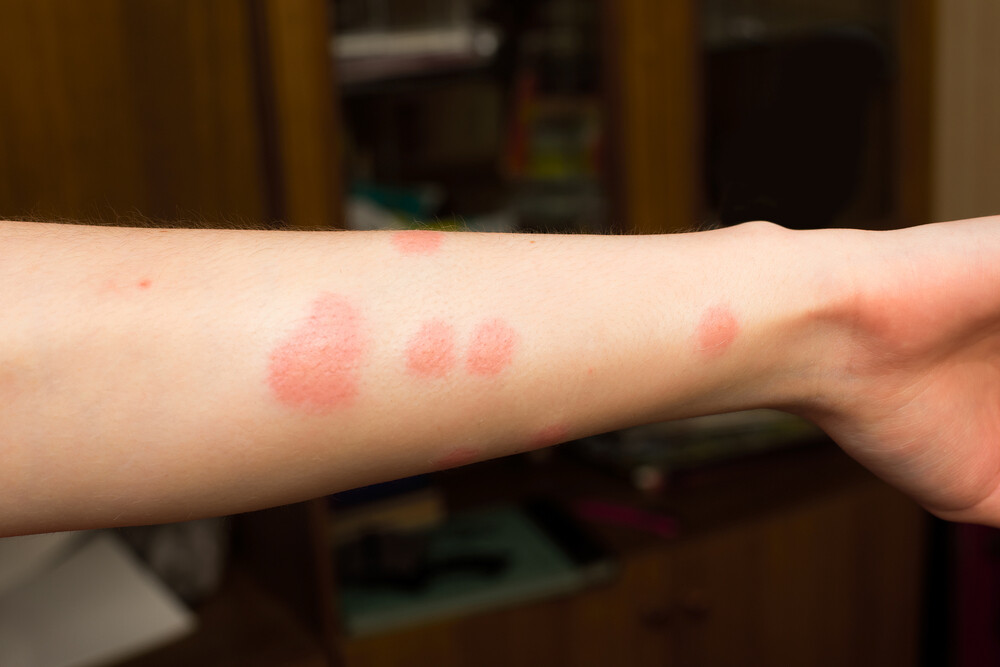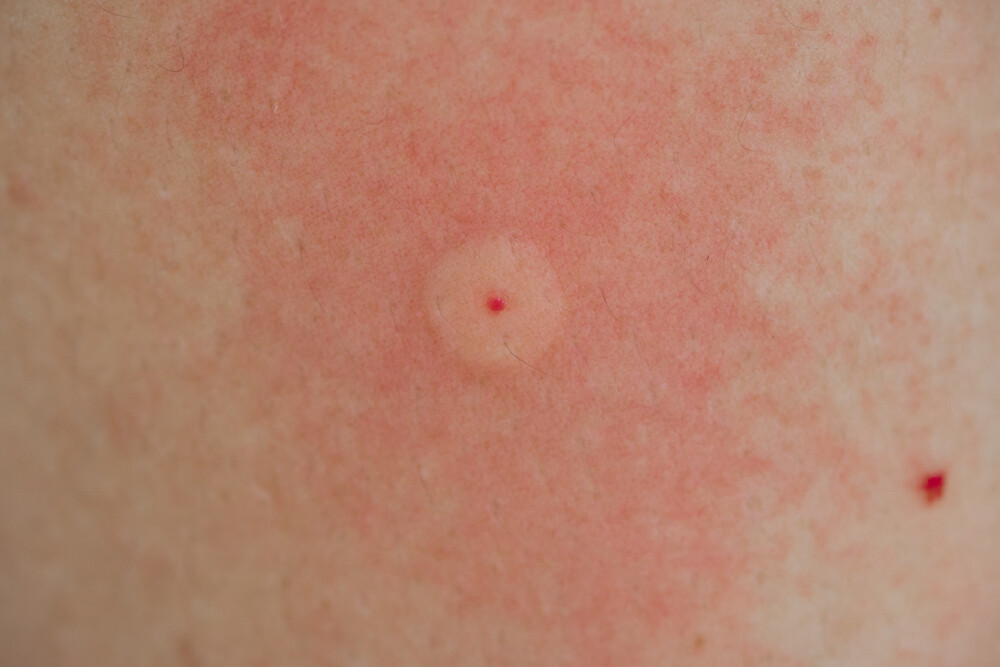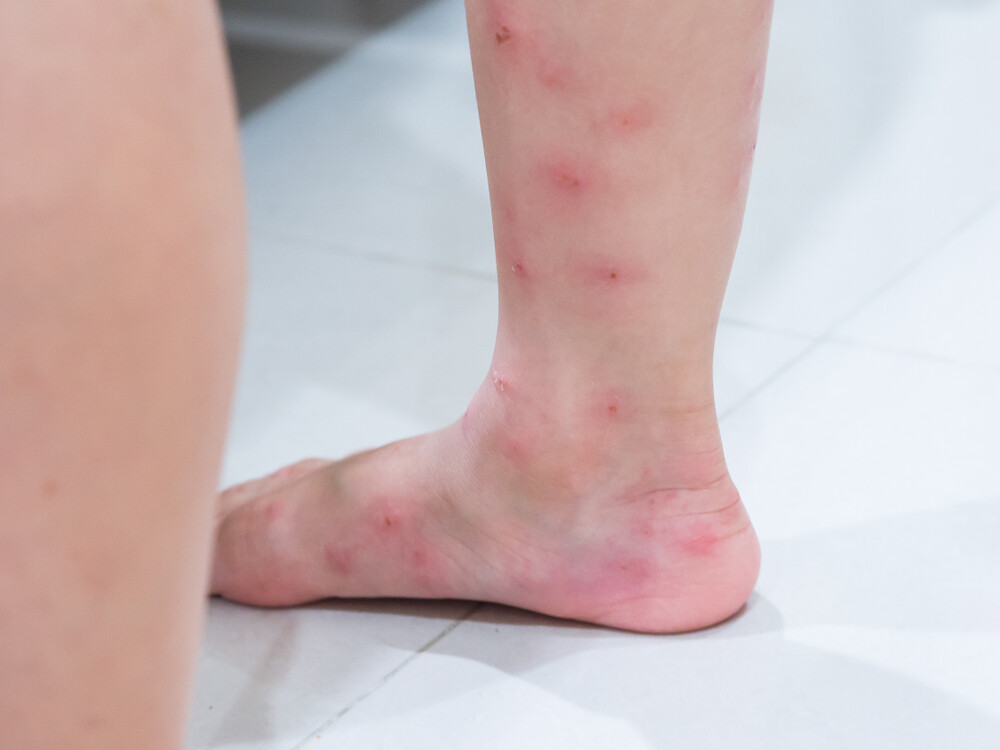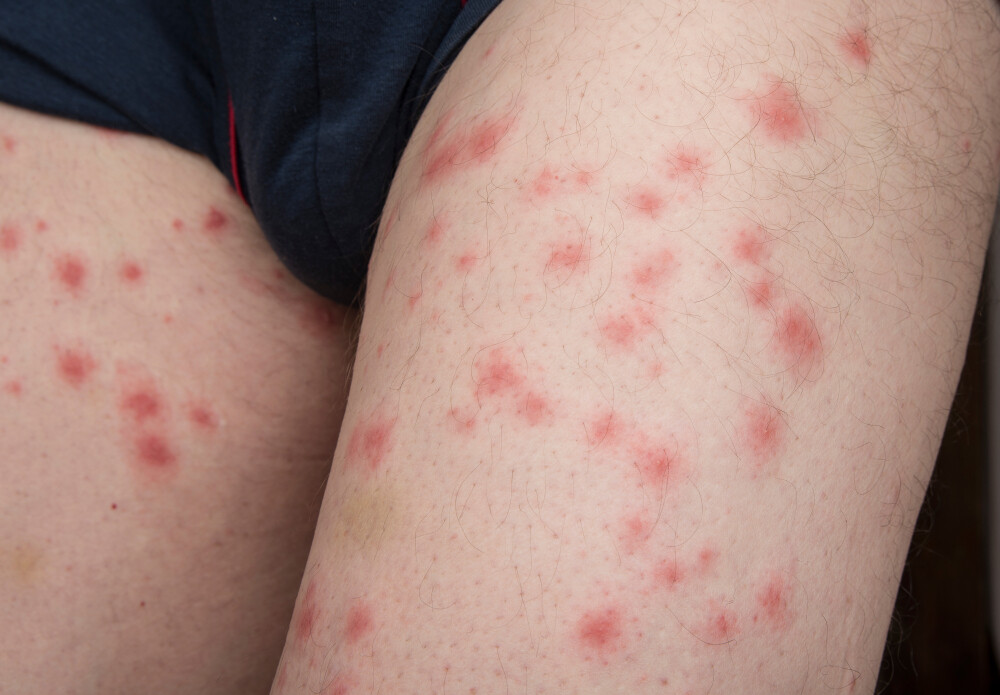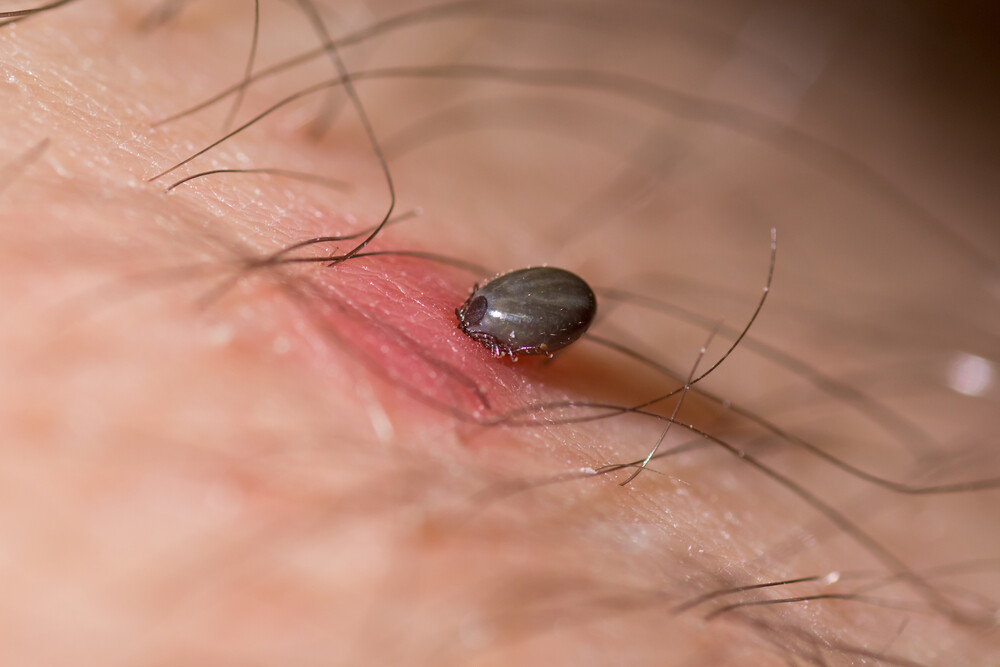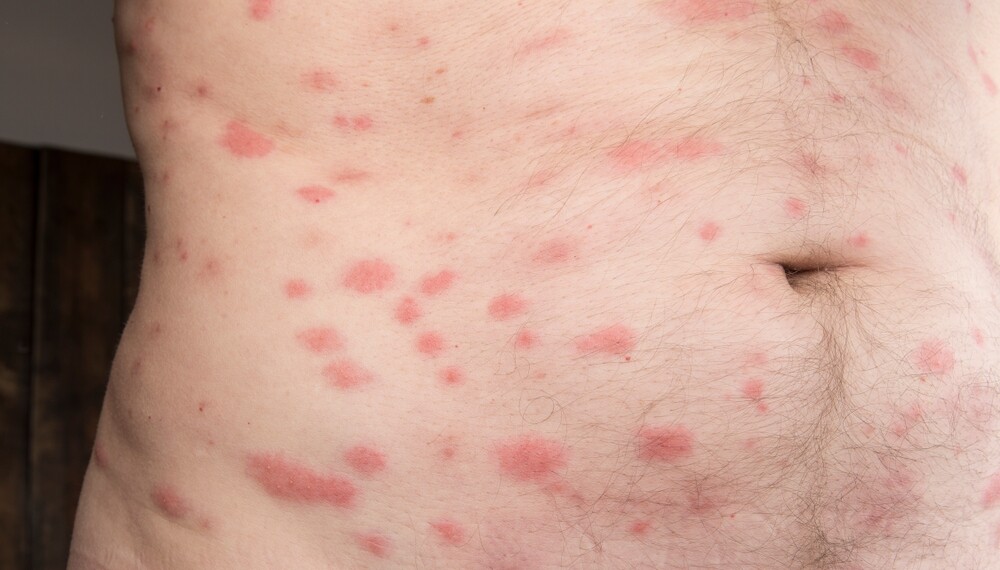You have an itchy sting on your body and can’t identify it? We show you six different insect bites and what you can do about it.
1. Bee sting
The sting of a bee you get to know in doubt – nevertheless it happens quickly that you can no longer assign the culprit. At first the sting shows a redness and slight swelling, later the pain turns into itching. With a bee sting, the sting remains as a black spot, which you remove directly in the best case. A bee sting should be cooled and treated with creams or home remedies.
2. Mosquito bite
Mosquitoes are particularly common in warm and humid areas – or even at night in your own bedroom. The mosquito bite manifests itself as a reddish bump that causes severe itching. Cooling, decongestant creams help here. Anyone who is allergic to insect bites and experiences symptoms such as fever, breathing problems and vomiting should always consult a doctor.
3. Ant bite
Anyone who has ever had a poisonous bite from an ant knows that ant bites are extremely unpleasant and painful. They show themselves through a whitish elevation, which should heal quickly. If the pain persists and the affected area swells, the bite must be treated with cortisone cream.
4. Bed bugs bite
The bites of bedbugs can quickly be confused with mosquito or flea bites. They are actually recognizable because they start itching, especially in the morning. In addition, bedbugs like to build roads on the skin, so the bites are arranged in a specific pattern. Some people have strong reactions, others only have small stings. They are treated with cooling cream.
5. Tick bite
In comparison to other insect bites, the tick bite only becomes noticeable later. For example, when you notice a dark spot and a slight swelling of the skin in the shower. If it is a tick, you should remove it immediately with tweezers! Monitor the bite over the next ten days – if a red circle forms around the bite site, a doctor should be consulted.
6. Flea bites
Anyone who has a pet with an outdoor enclosure may be familiar with them – these small stings, which are usually more common. When they are pressed, they can become whitish and thicker. Especially characteristic for flea bites: They are very itchy and if scratched, can become infected. Antihistamines normally help against itching. As a preventive measure, you should clean your bed linen and buy your pet a flea collar.


